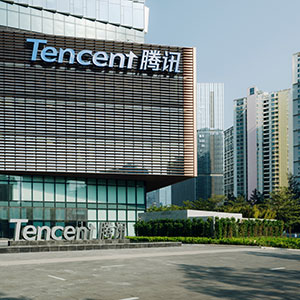What is data trafficking?
Laissez-faire U.S. data security combined with exploitative Chinese practices have enabled widespread data trafficking
Data trafficking is the extraction of user data for processing and profit-making outside a user’s control and the borders of the legal regime they consented to have protect them.
The lack of systemic data governance in the United States—a historic catalyst for tech industry growth—enables widespread data trafficking
The movement of data from the United States to China threatens digital sovereignty around the world. Digital sovereignty refers to a country’s control over its national digital infrastructures, technologies, and data. In prioritizing growth, U.S. regulators have taken a laissez-faire approach to digital sovereignty by permitting opaque and often predatory data-gathering practices.  In response, some countries have developed digital borders to protect their users from Silicon Valley firms. Many have not, leaving them open to exploitative corporate practices.
In response, some countries have developed digital borders to protect their users from Silicon Valley firms. Many have not, leaving them open to exploitative corporate practices.
The Chinese government builds on U.S.-based tech firms’ long tradition of exploiting the public for commercial gain. But the Chinese government has modified the U.S. model to more directly amplify its national power through tech corporations that depend on access to the Chinese market. Chinese laws enshrine direct government access to corporate data, both domestically and internationally. Together, the U.S. and Chinese approaches to data security increase the odds that citizens’ data will be moved across international borders without those citizens’ consent. Thus, the failure to regulate data gathering by tech firms operating in the United States not only exploits consumers but empowers the Chinese government.
To be clear, China’s role as a global data extractor is not a techno-orientalist fantasy of Chinese dominance; it is a Chinese government process grounded in the exploitative data-gathering practices that built Silicon Valley
Although data trafficking occurs around the world, I focus on data transfers from the United States to China. As the two largest economies in the world and major trading partners, the United States and China hold central places in the global trading system.
As compared to other developed democracies like the E.U. and Japan, for example, tech firms in the United States face much looser standards surrounding consumer data gathering and international data transfer. U.S. firms monetize user data generated when corporations monitor their behavior online, in what author Shoshana Zuboff dubs “surveillance capitalism.” In this way, the flexible regulatory environment of the U.S. tech sector has given U.S. tech firms the gift of global dominance across a wide range of consumer apps and technologies.
 In contrast, the Chinese government allows companies to access the Chinese market only if they submit to formal centralized oversight of corporate data. Additionally, China pairs extensive government control of the tech sector with far-reaching national and international oversight. One of the primary ways the Chinese government exercises this control is by supporting the growth of tech “national champions,” which come from the private sector but also advance and benefit from state policies. Common examples include the “BAT firms”: Baidu, Alibaba, and Tencent. Chinese government policies allow regulators to maintain an iron grip on these firms and their data, both domestically and internationally.
In contrast, the Chinese government allows companies to access the Chinese market only if they submit to formal centralized oversight of corporate data. Additionally, China pairs extensive government control of the tech sector with far-reaching national and international oversight. One of the primary ways the Chinese government exercises this control is by supporting the growth of tech “national champions,” which come from the private sector but also advance and benefit from state policies. Common examples include the “BAT firms”: Baidu, Alibaba, and Tencent. Chinese government policies allow regulators to maintain an iron grip on these firms and their data, both domestically and internationally.
The Chinese government also fosters the growth of Chinese tech firms by placing restrictions on foreign firms. The government follows a model of digital sovereignty called cyber sovereignty: it defines and protects the country’s digital borders by controlling data and tech infrastructure. The framework extends government control over any sector that Chinese tech firms touch. By restricting foreign firms’ access to the domestic market and supporting local alternatives, the Chinese government has fueled the global expansion of Chinese firms.
